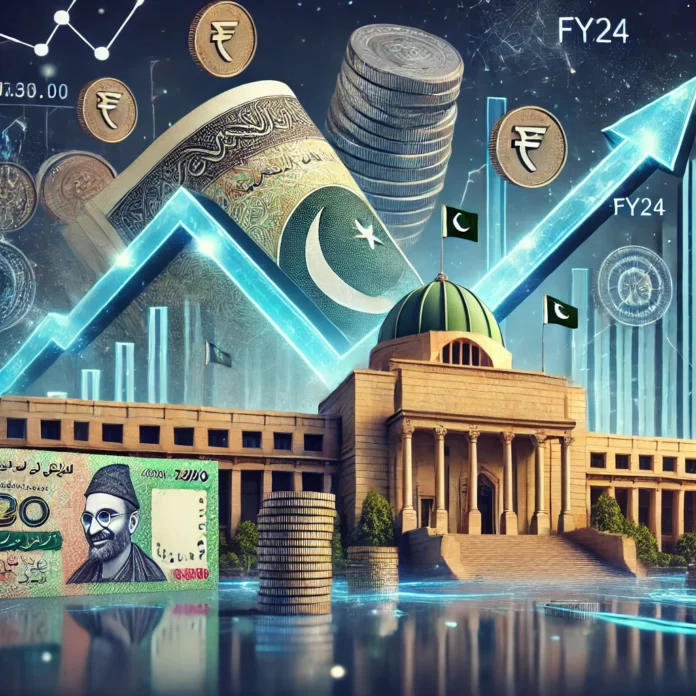Pakistan narrowly avoided sovereign default in 2024, securing relative economic stability through an IMF bailout, according to a report.
However, the year brought mounting challenges, including high taxation and economic stagnation, leaving the salaried class under immense pressure.
The government’s decision, under IMF conditions, to raise the tax burden on salaried individuals to 39% led to a 57% jump in tax payments, totaling Rs198 billion between July and November. This unprecedented tax hike strained households and fueled economic discontent.
Finance Minister Muhammad Aurangzeb and Deputy Prime Minister Ishaq Dar struggled to unify economic decision-making, with Dar playing a dominant role. Despite the establishment of the Special Investment Facilitation Council, no substantial foreign direct investment materialized.
The $7 billion IMF Extended Fund Facility, Pakistan’s 25th bailout, helped defer $17 billion in external debt obligations. However, the lack of sustainable debt restructuring leaves Pakistan reliant on IMF support, with the default threat persisting.
Government departments have expressed dissatisfaction with IMF conditions. The FBR fell short of its Rs13 trillion target, citing flawed assumptions. Other ministries, including Petroleum and Agriculture, raised concerns over subsidy cuts and increased agricultural taxes. Efforts to collect Rs50 billion from traders under a new taxation scheme also failed.
Meanwhile, government spending grew by 20%, with no significant reduction in the size of the federal cabinet or ministries.
The rupee stabilized at Rs278 per dollar, helping lower inflation to a six-year low. However, controlled imports and an undervalued rupee stifled informal market activities, limiting economic opportunities.
Young professionals increasingly sought opportunities abroad due to limited job creation and high living costs.
The power sector remained a persistent challenge, with exorbitant electricity bills further burdening low- and middle-income households.
The Benazir Income Support Programme provided temporary relief but failed to lift people out of poverty.
On the geopolitical front, the EU questioned Pakistan’s adherence to GSP Plus commitments, citing military court convictions of political activists.
With Donald Trump poised to return to the White House, Pakistan’s ability to secure favorable IMF outcomes may be tested.




